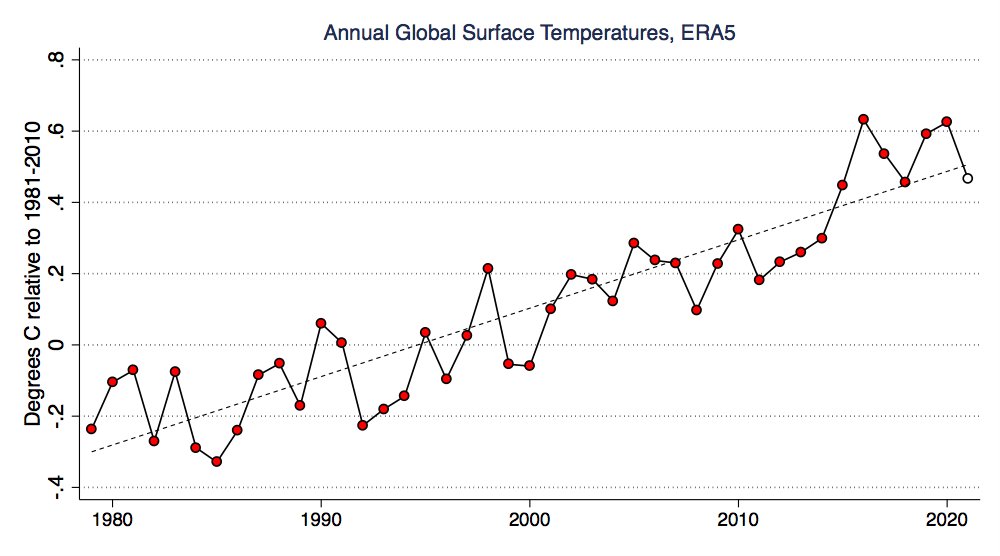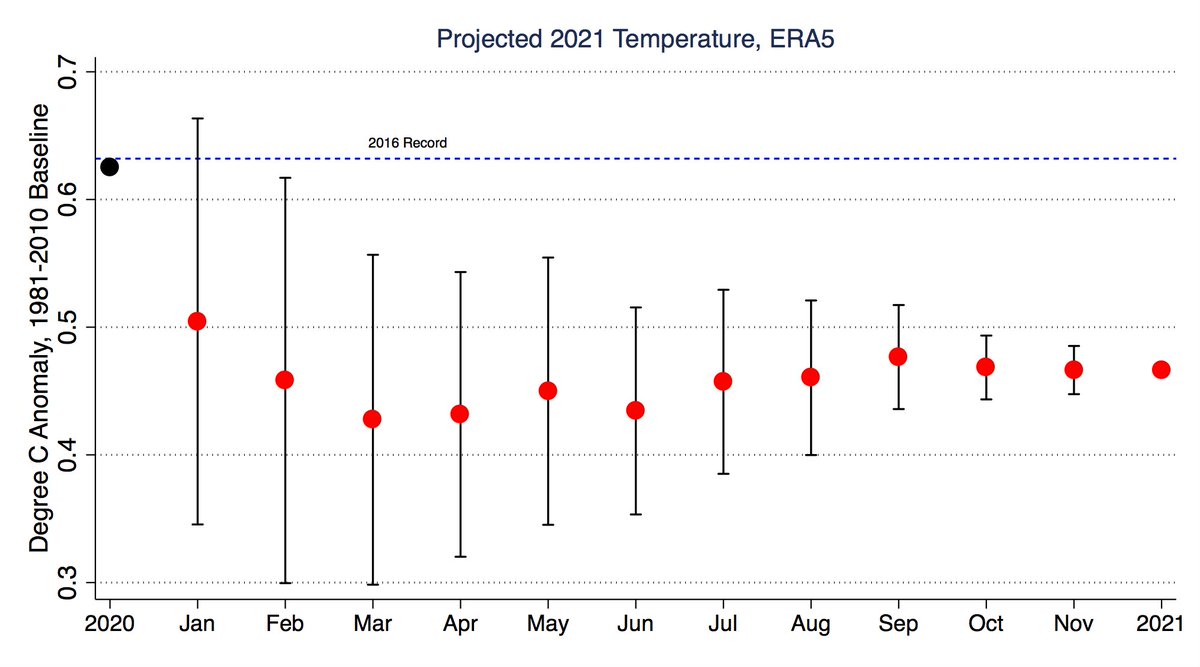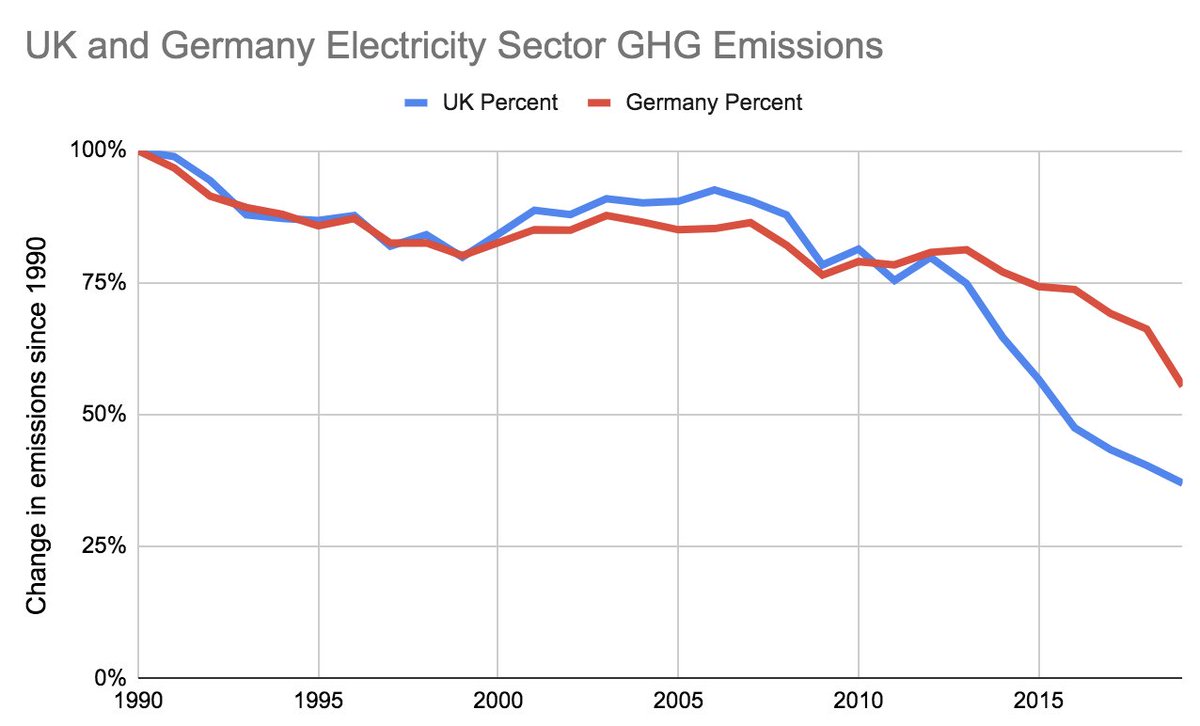
The first official 2021 global surface temperature results are now out from @CopernicusECMWF.
2021 was the 5th warmest year on record in their dataset. It was a bit cooler than the past few years due to a moderate La Nina event, but well in-line with the long-term warming trend
2021 was the 5th warmest year on record in their dataset. It was a bit cooler than the past few years due to a moderate La Nina event, but well in-line with the long-term warming trend

2021 was effectively tied with 2018 and 2015 in ERA5, and will likely end up between 5th and 7th warmest in all the surface temperature datasets once they are out. Data through December for both the global and Europe can be found here: climate.copernicus.eu/sites/default/…
Global temperatures are strong effected by El Nino and La Nina events, which is the primary driver of year-to-year variability on top of the long-term human-caused warming trend. You can think of it as a man walking a dog on the beach, as @neiltyson illustrated in @COSMOSonTV: 

I've been keeping an updated set of forecasts of where 2021 will end up as each month of the year has come in. Here is what the annual 2021 value looks like compared to each of my prior forecasts since last January: 

It is increasingly looking like 2022 will be similar to 2021; one of the top-8 warmest years, but with La Nina returning this winter its unlikely to end up in the top-3 warmest. We likely won't see a new record warmest year until the next El Nino event. metoffice.gov.uk/about-us/press…
• • •
Missing some Tweet in this thread? You can try to
force a refresh









